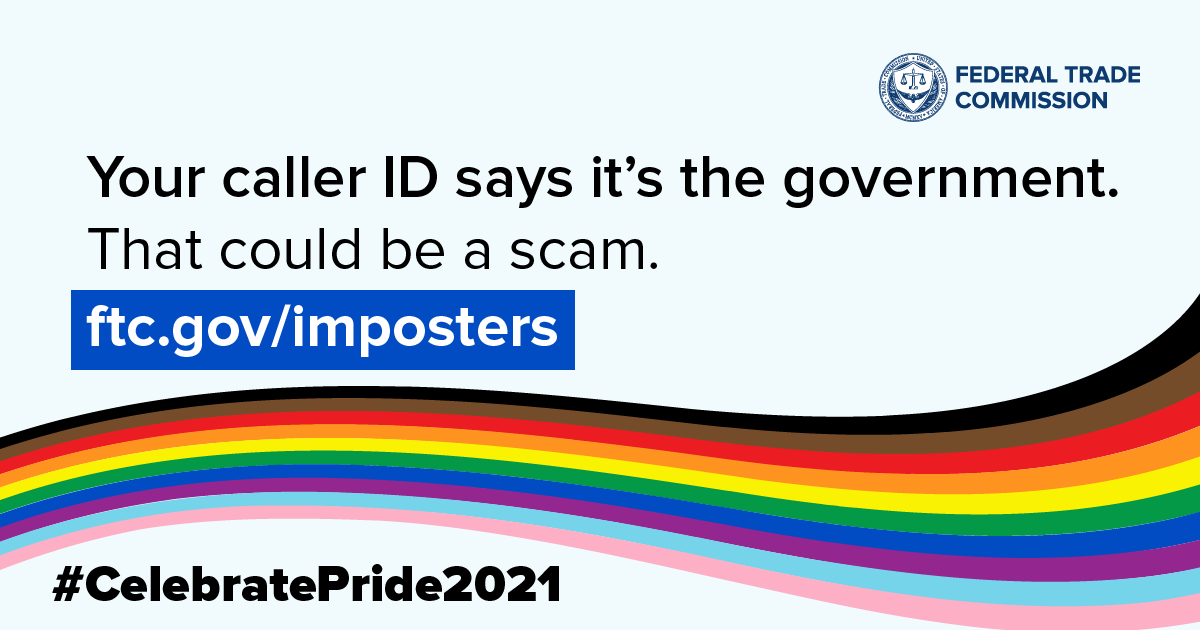
Scammers often disguise themselves as people working for the government and might pretend to offer help. But, really, they’re after your money or personal information. For Pride Month, the FTC wants the LGBTQ+ community to know about government imposter scams and how to avoid them.
Government imposters may call to “verify your Social Security number,” or say your Social Security number or Medicare benefits have been “suspended” due to a mix-up. Scammers may say your tax returns must be done differently because of a name change — and they need your Social Security number to fix it. For recently married people, or a trans person who recently changed their name, the excuses scammers use might make sense. But wait right there. Scammers are just phishing for personal information they can use to steal your identity or take your money.
So how do you spot it and stop it? Here’s what to know:
- Scammers call, email, or text you for money or information. But the government won’t. Anyone who calls, emails, or texts, asking for money or personal information and claims to be from the government is a scammer. Hang up and don’t respond to messages.
- Scammers tell you how to pay — usually by wiring money, cryptocurrency, or gift card. Nobody legit will ever tell you to pay in any of those ways. If they call, hang up the phone. If they email, text, or message you, don’t click on any links. It’s a scam.
- Even if your caller ID says it’s from the government, it could be a scam. Caller ID can be faked. Even if it shows the government agency’s real phone number, or even if it says something like “Social Security Administration,” it could be anyone calling from anywhere in the world. Don’t trust it.
If you spot a government imposter, tell the FTC at ReportFraud.ftc.gov.
Updated June 11, 2021 with updated language regarding people who change their names.

In reply to We have had the "Census by Wish
In reply to I wad contacted Buy a man by Kilgoret1000